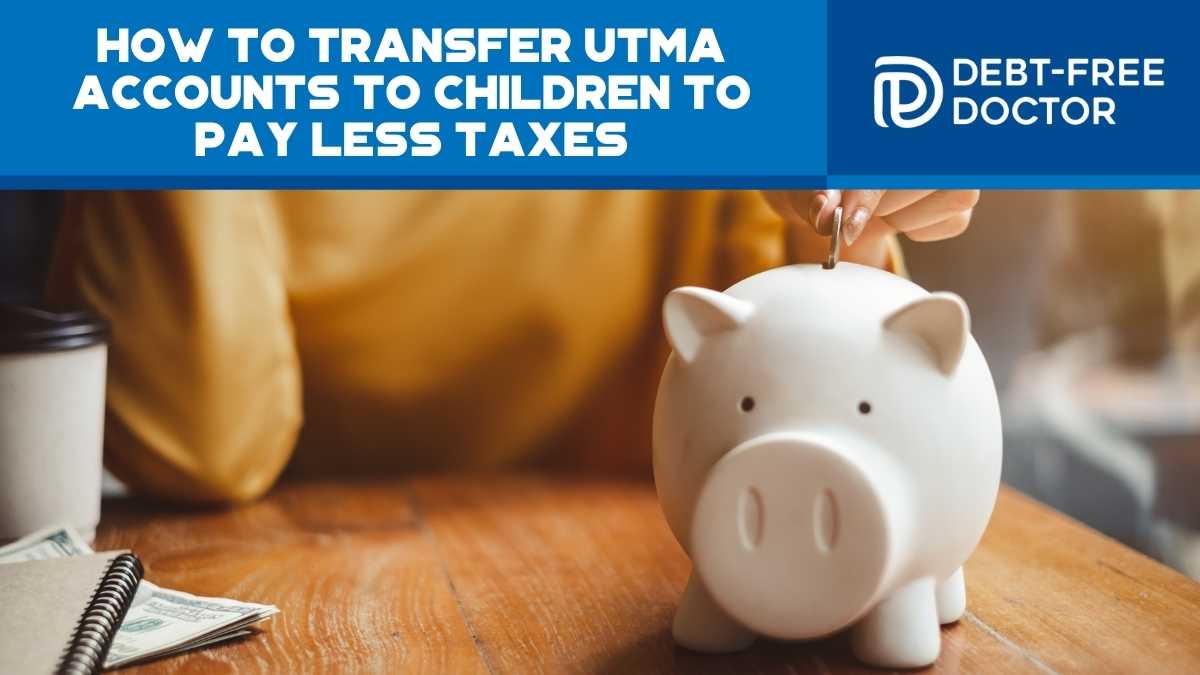Most doctors and other high income professionals typically want to do two things financially to help their families: Pay less taxes and teach their kids about money. One way that they can accomplish both is by employing children at their businesses/practices (consult your CPA for rules before doing so). By doing this, they’re able to lower the payroll tax + help save for kid’s future expenses.
Several years ago I opened Vanguard UTMA (Uniformed Transfer To Minors Act) accounts for my kids not knowing much about it. But as college looms ever so closely for our family, I began researching how to transfer the UTMA account to our child. Here’s what I found…
Custodial Accounts for Children – UGMA and UTMA
Before 529 plans became popular to save for kid’s college expenses, Uniform Gifts to Minors Act (UGMA) and Uniform Transfers to Minors Act (UTMA) accounts were considered the granddaddy of college savings accounts.
Both types are nothing more than custodial accounts, which are used to hold and protect assets for minors until they reach the age of majority in their state (typically age 18 or 21). At that point, the child can do whatever they want with the assets.
As the custodian of a UTMA/UGMA account, a parent can withdraw money whenever needed to benefit the child.
What’s the difference between the two?
UGMA – limits gifts and transfers to bank deposits, securities (including mutual funds, stocks, and bonds), and insurance policies.
UTMA – is an extension to UGMA and allows virtually any kind of asset (including all those under UGMA), including real estate, to be transferred to a minor.
Irrevocable Transfers
Before considering transferring assets into your child’s custodial account, remember that these gifts are irrevocable. Once it’s transferred, that’s it. There’s no turning back now.

Yes, I know, I’m full of all kinds of odd humor.
Anyway, when you transfer funds to your child’s account then there’s no changing your mind because you’re in a financial bind and wanting to take the assets back. Your child becomes the owner when you make the transfer. End of story.
Taxation
Earnings on these accounts are taxable to the owner (i.e the child). That’s one reason many adults like to utilize them because children are typically in a lower tax bracket than adults.
Transfers into a custodial account are just like any other gift. In 2021, you can make annual gifts up to $15,000 ($30,000 total if married) in cash, securities or other property to anyone without owing any federal gift tax and without filing a gift tax return.
Although income tax is assessed on the account earnings on an annual basis, the owner may also have to pay capital gains taxes after cashing in the account. This can happen if the investments in the account grow in value.
If you want more tax information, check out the IRS publication on the “Kiddie Tax” or consult with your tax advisor.
Financial Aid Implications
According to www.financialwisdom.com: Using a UTMA or UGMA account to receive assets transferred from parents may limit or reduce your child’s ability to qualify for needs-based financial aid to cover college costs. This is because many financial aid programs require the student to use 35% of their assets for college before being eligible for aid. The same programs may only require 5% of the parents’ assets to be used in the calculation.
This probably doesn’t apply to most readers of this blog (high-income professionals) as they have too high of an income to qualify for financial aid for their children. Shame on you for being successful!
Withdrawal Rules
A custodian can initiate a withdrawal for the benefit of the child, when the expenses are for legitimate needs. Withdrawals are not limited to college expenses as they can be used for pre-college educational expenses or anything related to the child at the custodian’s discretion.
The custodian must be able to prove that the minor directly benefits from the use of the money.
Once the child becomes a legal adult, they can use the money without limitations. Depending on your situation, this could be a good thing or a bad thing.
My Take
When I opened up custodial accounts for my kids many years ago, I didn’t know what I was doing financially and should have consulted with an estate planning attorney.
Each child received a 529 account when they were born, and the separate Vanguard custodial accounts were funded with excess money that I wanted to give them for later on in life.
At the time, I didn’t realize that they could do whatever they wanted to with the money once they reached legal age which is 18 in Louisiana. Most 18 year-olds I know could blow through that money fast. I know I could have!
Now our situation has changed as they’re both old enough to work in the practice and are on the payroll. Some of the money that they’re earning are being used to fully fund Roth IRAs which will be used to teach them about financial freedom.
If I had to do it all over again, I would have obtained more information instead of opening the custodial accounts. I guess we all learn from our mistakes, right?
Join the Passive Investors Circle

